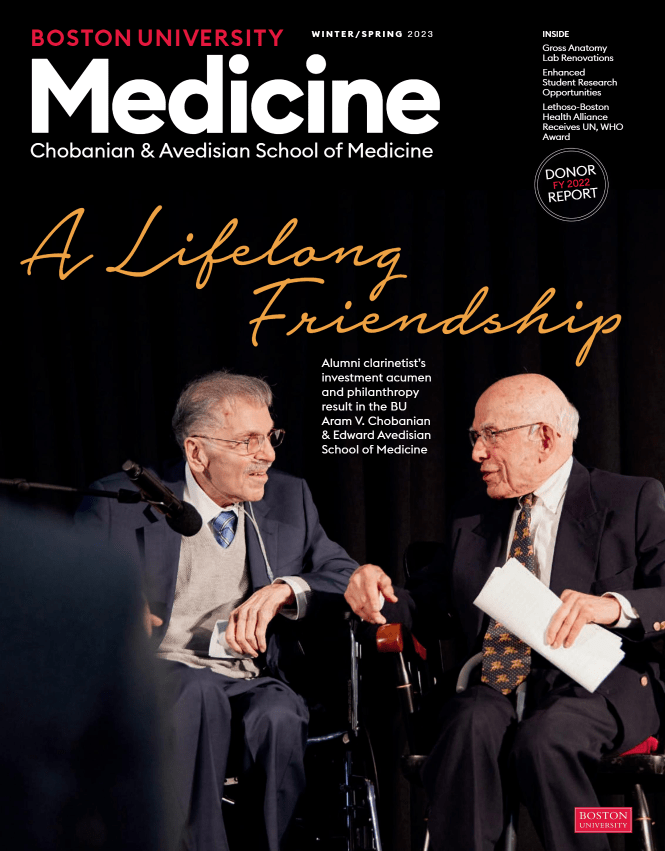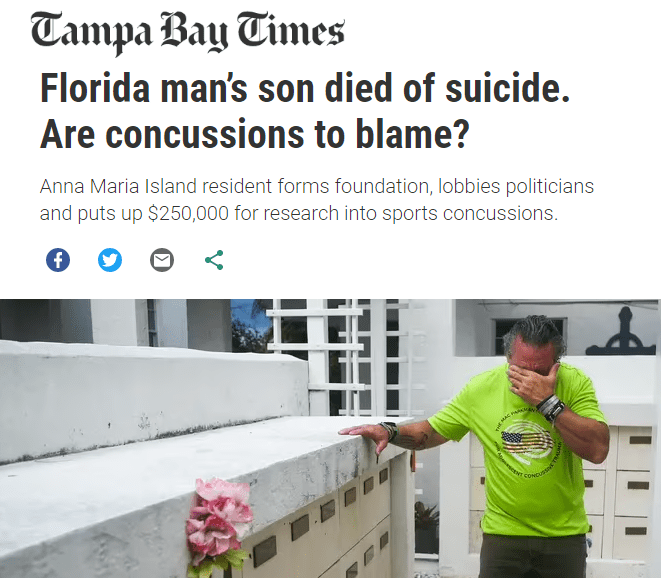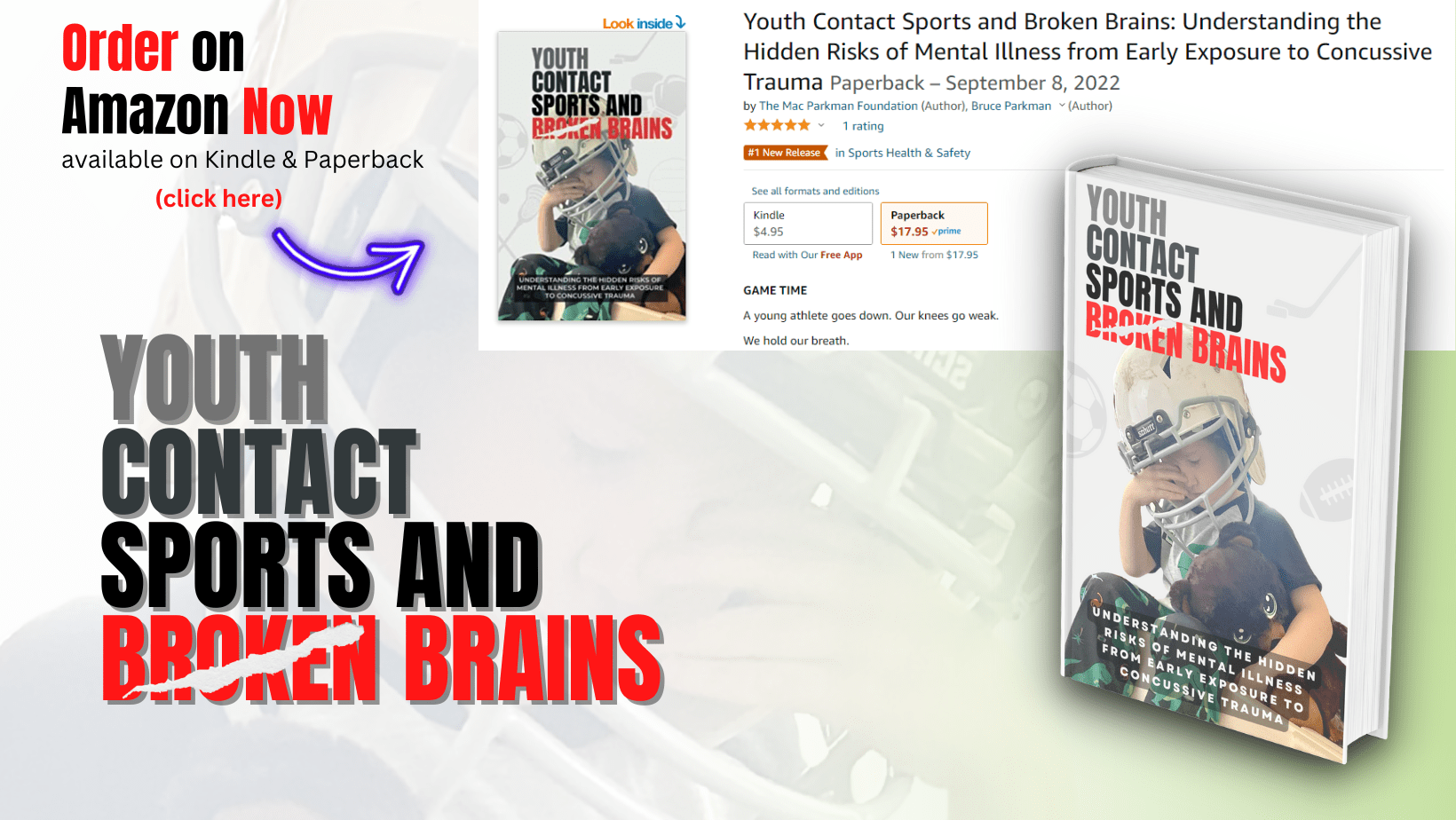#kidsbrainsmatter
Our team loves working with journalists to share our compelling story. If you’re a member of the media and would like to talk, please contact us below.

News on The Mac Parkman Foundation
News Channel 8 Investigative Reporter, Walt Buteau interviews Bruce Parkman of The Mac Parkman Foundation
Bruce Parkman hugged and kissed his teenager goodbye before he headed to football practice with no hint it would be the last time he would see him alive.
In a 39-second video posted on social media, Maconnell “Mac” Parkman revealed a painful secret he had hidden from his family.
“And so, I’m done,” the high school senior explained. “Schizophrenia for about two years, give or take. Depression for about three. And I’m just done.” . . . click to watch. (4 minutes)
Mac Parkman Foundation Funds Brain Injury Research in Young Athletes
The Mac Parkman Foundation has committed $258,000 to Boston University and the Icahn School of Medicine at Mount Sinai to study changes in the brains and neuropsychiatry of young contact sport athletes.
This work aims to help explain how white matter changes arising from repetitive head impacts lead to serious morbidity, including death. It has the potential to dramatically alter the way American football is played and neuropsychiatric illness is diagnosed.
Tips for parents of young athletes
Youth sports come with risks. These parents want to warn other parents.
Bruce and Perri Parkman are working to ensure parents are aware of the risks associated with brain injuries from contact sports.
CNN’s New Day With John Berman and Brianna Keilar interview Bruce Parkman of The Mac Parkman Foundation
In this interview Bruce Parkman discusses Dolphin QB Tua Tagovailoa’s concussive hit, the risk of second impact syndrome, and the lack of protocols among athletic programs – both professional and for adolescents.
It is known that long term repetitive head impacts, subconcussive and concussive trauma pose great risks to developing brains which can lead to challenges with mental health. (6 minutes)
Bruce Parkman’s son, Mac, was a popular high school student, a talented defensive lineman and high school wrestler.
Then he stepped off an 80-foot cliff.
It wasn’t until Parkman donated his brain to a concussion foundation that he began to get answers as to why his popular and successful son may have carried the weight of a deep depression.
His toxicology report showed he was sober when he posted a video in 2020 saying he was going to hurt himself. It wasn’t until Mac’s brain was examined by Dr. Ann McKee, the head of the CTE Center, that the Parkman’s started to get a clearer picture as to why Mac was not here.
The CTE Center found [brain] damage consistent with what they see in older professional athletes.

Local father works to save kids from sports-related brain injuries after his own son’s death.
Parkman said he didn’t know the mental pain his son Mac was in when the 17-year-old took his own life.
After Mac’s death, his dad wanted answers. He talked with doctors and did hours of research and then he discovered his son’s mental illness was likely caused by years of playing sports. Not from concussions, but from what’s known as subconcussive trauma.
“The continuous and relentless pounding of the brain, in practices from contact sports like lacrosse, rugby, soccer, heading the ball. Football. American football is what’s changing the brain as it’s developing and all those changes are negative in their outcomes.” (2 minutes)
Brain Damage and Youth Contact Sports
In this show, Chirag Sagar Presents Mission Matters #Brain #Damage and #Youth #Contact #Sports. Concussions in contact sports have become a major controversy drawing headlines. Backed by research, science is showing the mental issues children specifically are facing. Learn from the experts. (48 minutes)

Follow Us on Social
Education is the Key.
Mac’s story and the family’s vulnerability are powerful and followed by undeniable science. Youth Contact Sports And Broken Brains breaks down the science of brain development, repetitive brain trauma, and their links to mental illness while giving parents the information they need to keep their children safe when participating in contact sports.
It is important to know that the human brain is not designed to handle repetitive trauma!



